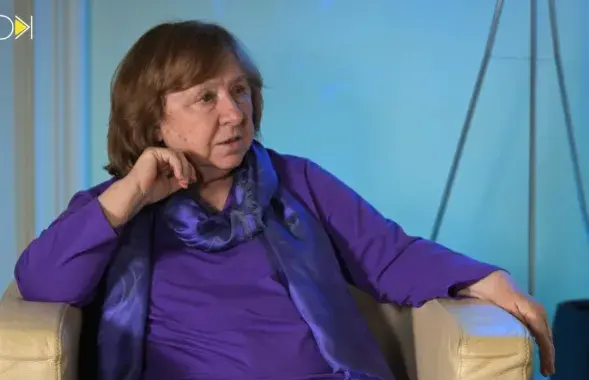Rymasheuski: "Everyone who travels abroad now has KGB's permit for that"
The BDC Co-Chairperson was allowed to go abroad although the law forbids him this.
"I'm on a criminal record for a conviction. I will be on a criminal record for two years. My departure from Belarus could become a cause for criminal prosecution, "- Vital Rymasheuski explains the reasons for his concern.
Yesterday, the politician returned to Belarus after a week of absence and
immediately caused a small scandal. The newspaper "Narodnaya
Volya" wrote about his trip to Brussels. It turned out that he was
going in the same compartment where the Vorsha police "found" drugs
on Syarhei Kalyakin, Alyaksandr Atroshchankau and Anatol Lyabedzka. All of them
were took off the train, but Rymasheuski was allowed to go.
“I have explained everything to the
journalist. I
told him that if they want to blacken my name let them write about my ass
again”, - Vital Rymasheuski says.
The
politician believes that the Belarusian secret services wanted to divide the
opposition on those who stand for sanctions, and those who are against, by
letting him go to Brussels.
"Everyone who travels abroad now has
KGB's permit for that. In
the sense that they do not get detained. They detain people very
selectively, only those who have a critical attitude towards the regime and
those who support the sanctions. This
is how the authorities shut their mouths. "
When Euroradio asked about the BCD’s Co-Chairman’s position on sanctions, Vital Rymasheuski said he had not spoke on that in public, neither in a positive nor in a negative way. He also refers to the fact that the opposition members, detained in Vorsha, took his side and asked him to convey their common position to the West. The BCD Co-Chairman also told Euroradio that initially he had an intention to leave the train together with the detained opposition politicians, but he considered it more reasonable to stay.
"Alyaksandr Atroshchankau even sent
me text messages with support until they took his phone. He asked to convey our
common position”.
Rymasheuski said that he was able to participate in the discussion of the
modernization package for the country. Its essence lies in the fact that
the EU will actually support reforms in Belarus, including
financially. The reforms will be developed jointly by the EU and the civil
society in Belarus.















